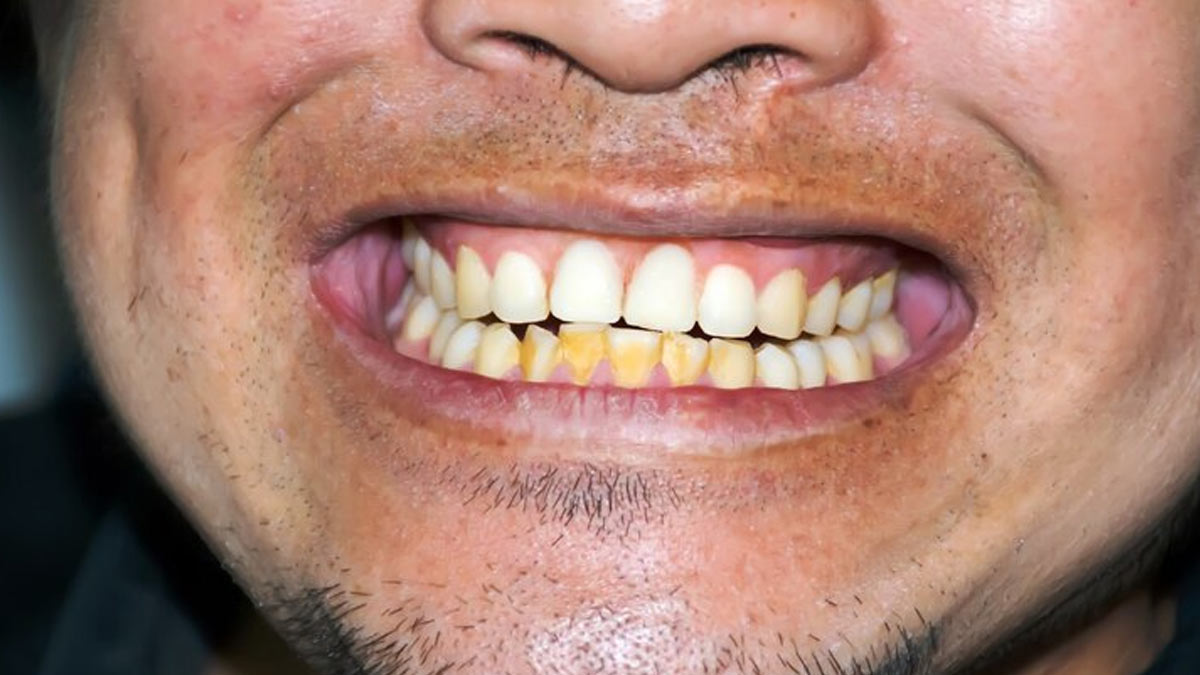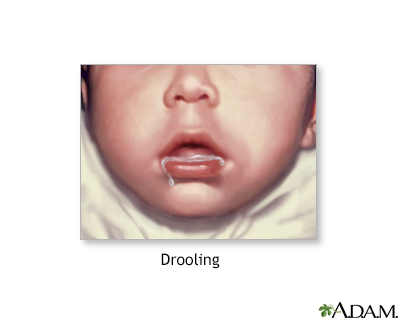
Kathryn P Moore, Movement Disorders neurologist at Duke Health, a Parkinson's Foundation Center of Excellence. Although botulinum toxin can be effective for drooling, it is costly, so doctors may recommend other treatments first. The benefit of botulinum toxin injections can last up to three months (or longer in some cases) before repeat injections are needed. Potential side effects include dry mouth, difficulty swallowing and weakness of the muscles in the jaw area.

Onabotulinum toxin A (Botox) and abobotulinum toxin A (Dysport) are used off-label (not FDA approved for a specific condition) to decrease saliva production.Īn injection of botulinum toxin into the salivary glands in the cheek and jaw area can decrease saliva production with minimal side effects. Incobotulinum toxin A (Xeomin) and rimabotulinum toxin B (Myobloc) are FDA-approved for excess saliva and drooling.

When severe, drooling is an indicator of more serious difficulty with swallowing (also known as dysphagia), which can cause the person to choke on food and liquids and can even lead to aspiration pneumonia.īotulinum toxin injections are another option for treating excess saliva and drooling. In PD, usually the amount of saliva your body produces is normal, but swallowing issues – swallowing less often or not completely – lead to saliva pooling in the mouth. Parkinson’s causes a reduction in automatic actions, including swallowing, creating an inability to manage the flow of saliva in and around the mouth. For example, this can happen when the head is down, the mouth is held open involuntarily (as happens when PD advances) or when a person is engaged in an activity and is distracted from the need to swallow automatically.ĭrooling, along with speech and swallowing difficulties, is included among non-movement symptoms even though the root cause is motor: decreased coordination, slowness of movement ( bradykinesia) and rigidity of the muscles of the mouth and throat. It ranges from mild wetting of the pillow during sleep to embarrassing outpourings of saliva during unguarded moments. Excessive drooling, called sialorrhea, is a common symptom of Parkinson’s disease (PD) and can cause awkwardness in social situations. Journal of Obstetric, Gyanecological and Neonatal Nursing. European Journal of Obstetrics, Gynaecology and Reproductive Biology 198: 47-9. (2016) Ptyalism in pregnancy – a review of epidemiology and practices. Thaxter Nesbeth KA, Samuels LA, Nicholson Daley C, Gossell-Williams M, Nesbeth DA. If the problem is too much saliva then a few options are available: Food and Drink: Some foods and drinks can help reduce saliva production. North American Journal of Medical Sciences 1(6): 303-304. Suzuki S, Igarashi M, Yamashita E, Satomi M. Journal of the National Medical Association. (1994) Evaluation and management of sialorrea of pregnancy with comcomitant hyperemesis. Make friends with other parents-to-be and new parents in your local area for support and friendship by seeing what NCT activities are happening nearby.įreeman JJ, Altieri RH, Baptiste HJ, Kao T, Crittenden S, Fogarty K, Moultrie M, Coney E, Kanegis K. We also offer antenatal courses which are a great way to find out more about birth, labour and life with a new baby. Our support line offers practical and emotional support with feeding your baby and general enquiries for parents, members and volunteers: 03. This page was last reviewed in March 2018 Further information (Suzuki et al, 2009 Thaxter Nesbeth et al, 2016). chewing sugarless gum or sucking hard sweets.brushing your teeth and using mouthwash several times a day.While there is no medical treatment for ptyalism, you may be able to ease symptoms by:

Other causes include heartburn, which is common in pregnancy, and irritants like smoke, toxins and some medical conditions. It can also be caused by pregnancy sickness, as nausea can make women try to swallow less, especially in those with hyperemesis gravidarum (extreme morning sickness). Causes of excessive salivaĪs with most things in pregnancy, your hormones are to blame for excessive saliva (Freeman et al, 1994). The good news for most women is that it should ease after the first trimester. You might need to spit out some saliva into a tissue quite often, and the bitter taste of the saliva can cause nausea and vomiting. Ptyalism is common during the first trimester of pregnancy. Ptyalism won’t harm your baby and is not a serious condition but that doesn’t mean you can’t find it upsetting and uncomfortable. Ptyalism is also known as hypersalivation or sialorrhea, and often affects women in the early stages of pregnancy (VanDinter, 1991, Freeman et al, 1994). People with ptyalism might produce one to two litres of saliva daily (Freeman et al, 1994). Ptyalism is a condition where you make too much saliva.


 0 kommentar(er)
0 kommentar(er)
